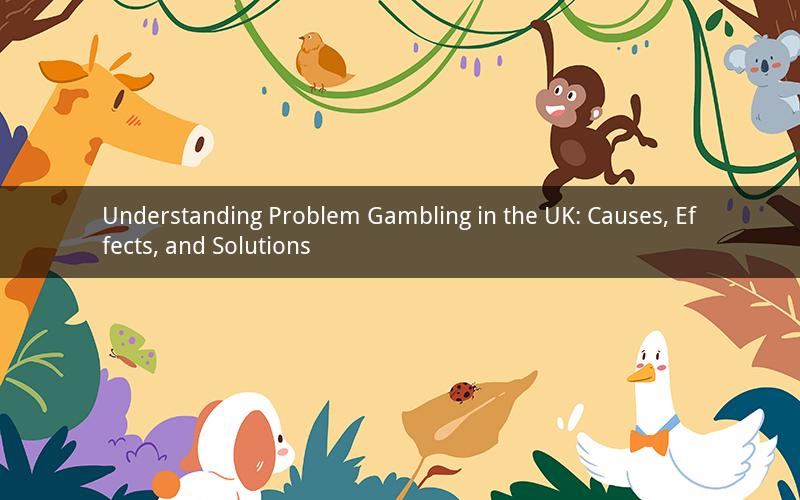
Problem gambling, also known as gambling addiction, has become a significant concern in the United Kingdom. With the rise of online gambling and the availability of various betting platforms, it is crucial to understand the nature of this issue and its impact on individuals and society. This article aims to explore what problem gambling is, its causes, effects, and potential solutions.
What is Problem Gambling?
Problem gambling refers to a pattern of gambling behavior that leads to significant harm or distress. It is characterized by an inability to control gambling, despite negative consequences. The UK Gambling Commission defines problem gambling as a disorder that can affect anyone, regardless of age, gender, or socioeconomic status.
Causes of Problem Gambling
Several factors contribute to the development of problem gambling. These include:
1. Genetic predisposition: Research suggests that genetics play a role in the development of gambling addiction. Individuals with a family history of addiction may be more susceptible to developing problem gambling.
2. Psychological factors: People with certain personality traits, such as impulsivity and thrill-seeking behavior, may be more prone to developing gambling problems. Additionally, individuals with mental health issues, such as depression or anxiety, may turn to gambling as a coping mechanism.
3. Social factors: Peer pressure, exposure to gambling in social settings, and the influence of media can all contribute to the development of problem gambling. Moreover, individuals who have experienced trauma or loss may turn to gambling as a way to escape their emotions.
Effects of Problem Gambling
Problem gambling can have severe consequences for individuals and their families. Some of the most common effects include:
1. Financial problems: Problem gamblers often experience significant financial difficulties, including debt, bankruptcy, and loss of assets.
2. Relationship issues: Problem gambling can strain relationships with family, friends, and partners. It can lead to arguments, infidelity, and even separation or divorce.
3. Mental health issues: Problem gamblers are at a higher risk of developing mental health problems, such as depression, anxiety, and substance abuse disorders.
4. Physical health problems: The stress and anxiety associated with problem gambling can lead to physical health issues, such as headaches, insomnia, and heart disease.
5. Legal problems: Problem gamblers may engage in illegal activities to fund their gambling habits, such as theft or fraud.
Solutions to Problem Gambling
Addressing problem gambling requires a multifaceted approach. Here are some potential solutions:
1. Education and awareness: Raising awareness about the risks of problem gambling can help individuals recognize the signs and seek help early on.
2. Treatment and support: Professional treatment, such as therapy or counseling, can help individuals overcome their gambling addiction. Support groups, such as Gamblers Anonymous, can also provide a sense of community and encouragement.
3. Responsible gambling initiatives: The UK Gambling Commission has implemented various measures to promote responsible gambling, such as age verification, deposit limits, and self-exclusion options.
4. Strengthening laws and regulations: Governments can strengthen gambling laws and regulations to protect vulnerable individuals and prevent the spread of problem gambling.
5. Community-based programs: Community programs can provide support and resources to individuals affected by problem gambling, including counseling, financial assistance, and legal aid.
Frequently Asked Questions
1. Q: Can anyone develop a gambling problem?
A: Yes, anyone can develop a gambling problem, regardless of age, gender, or socioeconomic status.
2. Q: Is problem gambling a mental health disorder?
A: Yes, problem gambling is recognized as a mental health disorder by the World Health Organization.
3. Q: How can I tell if I or someone I know has a gambling problem?
A: Signs of problem gambling include an inability to control gambling, lying about gambling activities, neglecting responsibilities, and experiencing financial, emotional, or legal problems due to gambling.
4. Q: Can problem gambling be treated?
A: Yes, problem gambling can be treated through various methods, such as therapy, counseling, and support groups.
5. Q: What can I do if I think someone I know has a gambling problem?
A: Encourage them to seek help from a professional or support group. Offer your support and be patient, as recovery can be a challenging process.